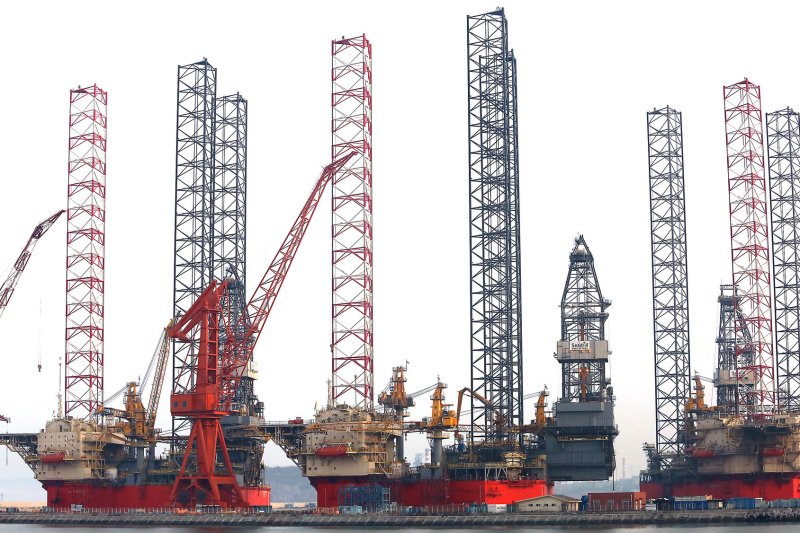Norwegian oil and gas production for March was lower than expected, the government said Thursday. File Photo by Stephen Shaver/UPI |
License Photo
April 19 (UPI) -- Technical problems were to blame for a drop in average daily oil production from Norway, one of Europe's main suppliers, the government said.
The National Petroleum Directorate, the nation's energy regulator, said March oil production averaged 1.5 million barrels per day, based on preliminary figures.
"Oil production is approximately 5 percent lower than the NPD's forecast, and about 3.0 percent below the forecast this year," the directorate stated Thursday. "The main reasons that production in March was below forecast is technical problems on some fields."
The government provided few other specifics on the downturn. On the potential for future production, the Johan Sverdrup oil field in the Norwegian waters could be producing as much as 660,000 once all operational phases are in service by 2022.
Earlier this week, regional explorer Aker BP said results from a wildcat well, one not previously known to hold reserves, had only traces of petroleum and classified as dry. The exploration well was about 4 miles southwest of the producing Knarr field and 12 miles north of the Visund field.
Total gas production, meanwhile, was 2.3 percent below the previous month and 1.1 percent less than expected.
Norway is one of the main suppliers of oil and natural gas to the European market, apart from Russia. A profile of the European energy market for 2018 from the U.S. Center for Strategic and International Studies found Russian exports to Europe last year increased 8 percent for an all-time high, but the market is diversifying.
"The bottom line is that Europe pulled in more gas from everywhere, because there are no longer systematic differences that would lead buyers, en masse, to prefer one supply source over another," energy associate Nikos Tsafos wrote.















